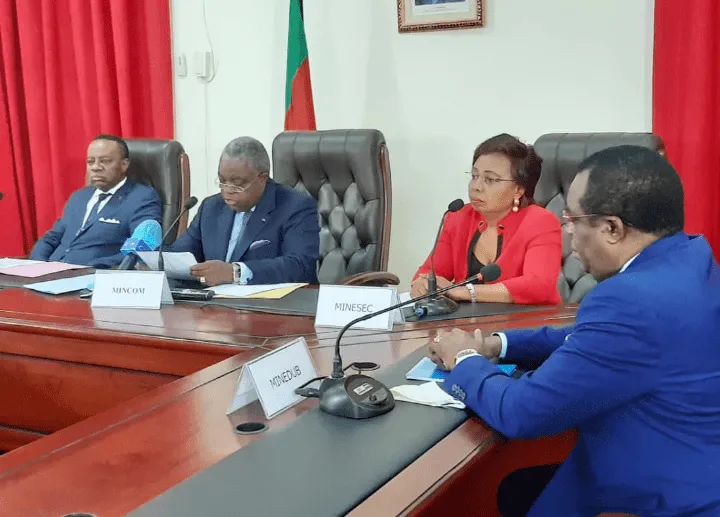Cameroon, like many countries in the world, is at a very different point of the COVID-19 pandemic, with its underlying socioeconomic and political conditions making matters worse. From an overwhelmed healthcare system, that is if the country has one, to deepening economic and political despair born of wicked proportions of bad governance.
Even before Cameroon wins one battle in the COVID-19 war, its governing class insists on the question of reopening schools this June 1 – at least for learning due to sit end of year certificate exams. Without addressing underlying bad governance issues like the absence of potable water and classrooms worth the name, reopening schools carries the country’s public health risk of viral resurgence.
Parents and teachers are understandably wary. How can schools resume under such conditions? Taking to Twitter Monday, May 25, 2020 the country’s Minister of Public Health, Dr. Manaouda Malachie called on citizens to, more than ever before, protect themselves as the central African nation enters a complicated phase of the pandemic.
Hear him: “It is important to note that we are entering a complicated phase of the pandemic. Therefore, more than ever, we must protect ourselves, protect our families and protect others by observing barrier measures. Wear a mask when going out and wash your hands regularly.”
Pupils and students are expected to resume on-campus learning in Cameroon on Monday, June 1, 2020 for the first time since March when the whole country started going under lockdown to stifle the spread of the coronavirus.
John Hopkins University puts the number of COVID-19 cases in Cameroon at 5,904 with 191 deaths. With fears that the numbers may peak further, authorities say the state is mobilized to contain the situation.
“Our determination to defeat COVID-19 in our country, together with you, is greater than ever and the healthcare personnel are just as motivated to win this battle,” Manaouda says. “But the condition is that each of us must observe and observe the barrier measures.”
As the country is entering a complicated phase of the pandemic, it is ramping up plans to have schools resume on June 1, at least for examination classes and universities.
Prime Minister Head of Government Joseph Dion Ngute at a cabinet meeting held through videoconferencing on May 14 issued technical guidelines for schools nationwide to reopen in an orderly manner, depending on the situation of the coronavirus pandemic.
On the occasion, he said President Paul Biya had approved the resumption only for examination classes in primary and secondary schools with learners properly distributed across classrooms to allow for the strict respect of social distancing rules – not more than 50 learners will be admitted per class.
Sanitary kits with hand sanitizers, thermo-flashes, and hand-washing basins will be available at the entrance of the schools, according to the guidelines. It will be imperative for pupils, students and teachers to wear protective face masks, Ngute said, stressing “prevention is and remains the main weapon available to each and every one of us.”
On May 20, 2020, Roger Koffo Fokou, Spokesman of the country’s teacher trade unions said certificate exams should be set based on what was covered before schools were closed in March.
The teachers say should government push through with school resumption plans; it should ensure that protective masks and hydro-alcoholic solutions are made freely available to all students and teachers. They went on to demand that school campuses be systematically disinfected, not more than 24 learners allowed per class, disbursement of a special bonus for teachers as well as the beefing up of examination centers so they can attend to health emergencies.
As we went to press, government was yet to react to the two-page memo addressed to the Prime Minister, Head of Government. It had however not backed out of its plan to have schools resume on June 1, despite fears COVID-19 is far from being contained.
The Prime Minister however said in a recorded message on state TV that they were going on with plans to have schools opened on June 1. It is not known if potable water that is a scare resource nationwide will have its availability decreed as from Monday.
On March 17, Cameroon rolled out measures to stifle the spread of the novel coronavirus, with schools closed and the country’s territorial borders shut a day later.
They country now holds its breath with the hope that reopening schools will not uncap a deadlier phase of COVID-19.
Mimi Mefo Info



